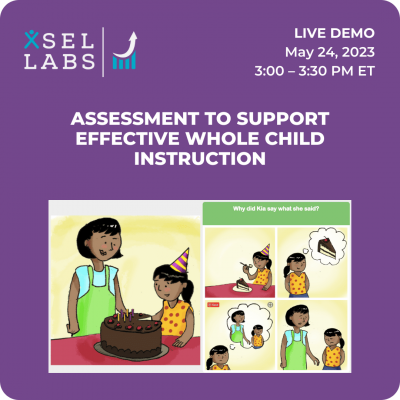
xSEL Labs’ assessments are easy-to-implement, program agnostic, and directly measure students’ social and emotional learning strengths and needs. Providing the only direct measure of social and emotional competencies, xSEL Labs’ assessments are aligned with the CASEL framework, state guidelines, and evidence-based SEL programs.
Join us for a live demo to learn about xSEL Labs assessment solutions.
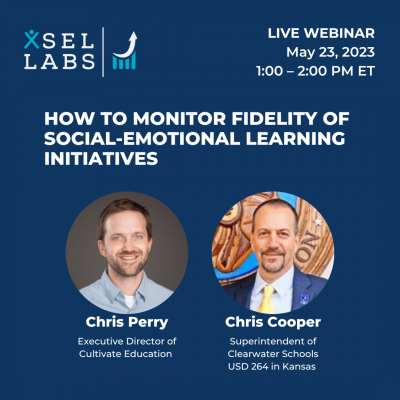
A key challenge with any educational initiative is understanding whether we did what we intended and whether those efforts led to improved student outcomes. In this session, participants will learn a framework for monitoring implementation fidelity for social-emotional learning (SEL) initiatives. We will discuss the highest-quality approaches for measuring fidelity, the most feasible approaches, and the best overlap between quality and feasibility.
In addition, we will hear insights from a district currently engaged in this work, including how they have connected SEL initiatives to their five-year strategic plan and how they tackle the intricacies of training staff to implement SEL fidelity measures.
Our speakers will include:
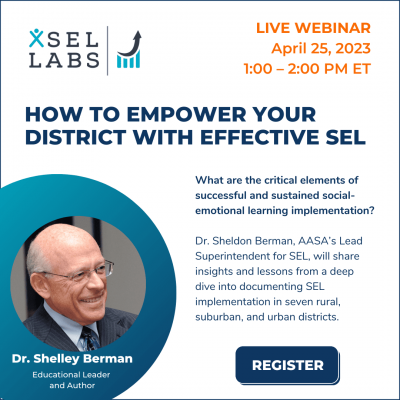
What are the critical elements of successful and sustained social-emotional learning implementation?
Dr. Sheldon Berman, educational leader and author, has taken a deep dive into documenting social-emotional learning implementation in seven rural, suburban, and urban districts to draw lessons and insights that can help other districts. Those lessons will be published in the forthcoming book, Implementing Social-Emotional Learning: Insights from Districts’ Successes and Setbacks. In this webinar, you will learn:
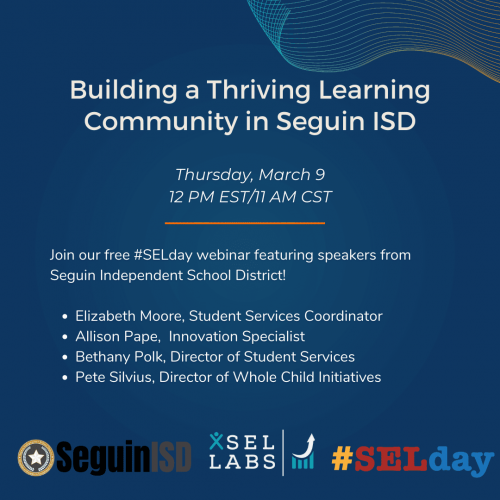
Seguin Independent School District (Seguin ISD) in Texas shares how to build a thriving learning community with a focus on whole child development and data-informed MTSS practice. We will discuss the district’s Whole Child Initiative and how it connects SEL performance measures to strategic actions, programming, and day-to-day supports. Speakers include:
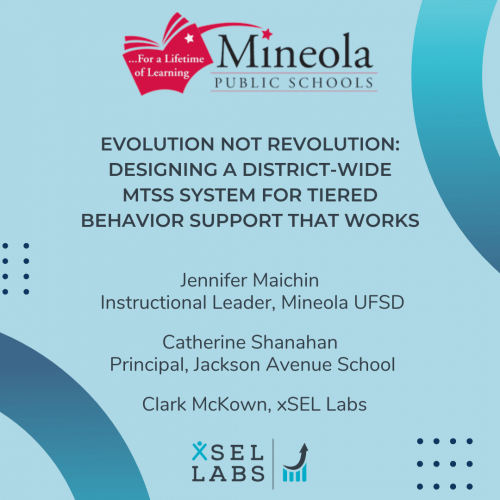
In this webinar, Jennifer Maichin, Instructional Leader at Mineola Union Free School District (Mineola UFSD), and Catherine Shanahan, Principal at Jackson Avenue Elementary School, describe how SEL assessment informs instructional practice. Learn how Mineola UFSD integrated high-quality SEL assessment data into an innovative MTSS platform to support all tiers of instruction.
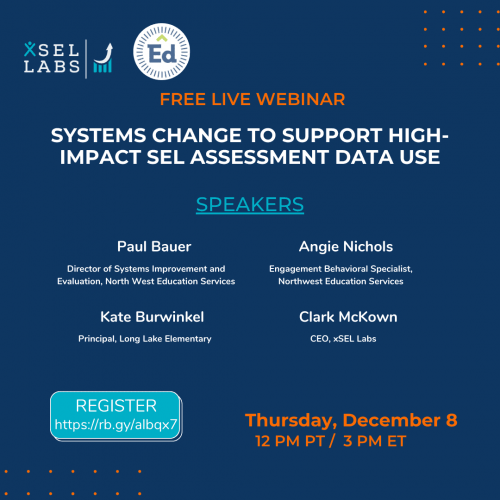
SEL assessment data is easy to collect but harder to use effectively. In this webinar, Dr. Paul Bauer, Director of Systems Improvement and Evaluation from Northwest Education Services, will describe how he and his colleagues supported 16 school districts using SEL assessment data to guide practice. To provide a view of this initiative from different perspectives, Dr. Bauer will then lead a panel discussion with educators in various roles about the systems change process.
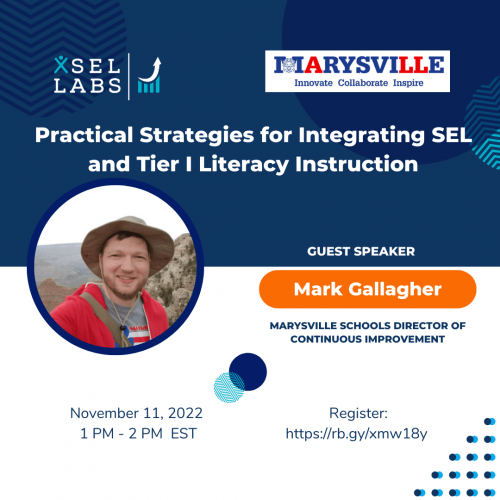
xSEL Labs and Mark Gallagher, Director of Continuous Improvement - Marysville Schools, discuss how Marysville Schools uses practical strategies to integrate social-emotional learning (SEL) and Tier I Literacy instruction.
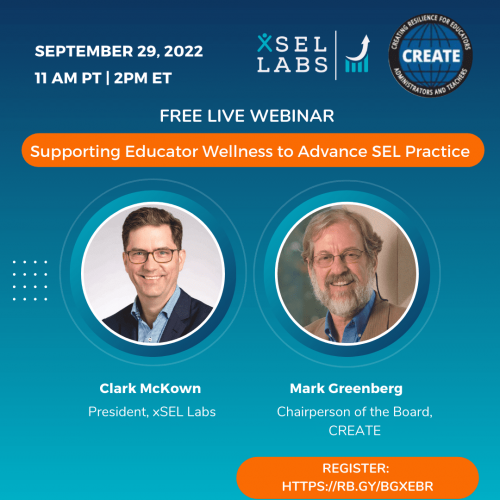
Research demonstrates that educator well-being is tied to many benefits, including job satisfaction, teacher-student relationships, and children’s social-emotional skill development. Research also shows that educators’ beliefs about SEL impact their teaching practice and effectiveness. So how can schools and districts best foster educator well-being and commitment to SEL? Join us for a discussion with Mark Greenberg, PhD., Chairperson of CREATE, and Clark McKown, Founder, and President of xSEL Labs, to explore evidence-based practices for cultivating educator well-being and SEL commitment.
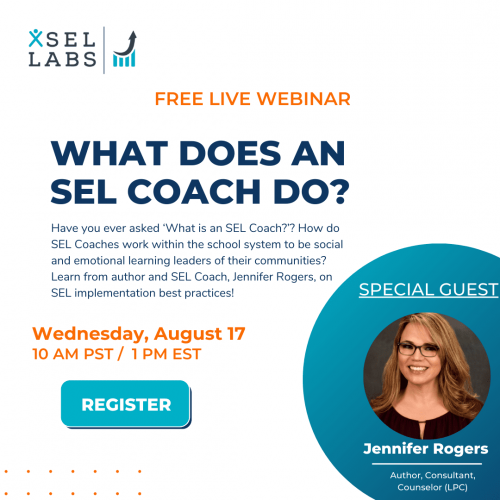
Have you ever asked ‘What is an SEL Coach?’? How do SEL Coaches work within the school system to be social and emotional learning leaders of their communities? Author of “The SEL Coach: Planning and SEL Implementation Resources for Social and Emotional Learning Leaders,” Jennifer Rogers, walks through commonly asked questions regarding SEL Coaches within schools.
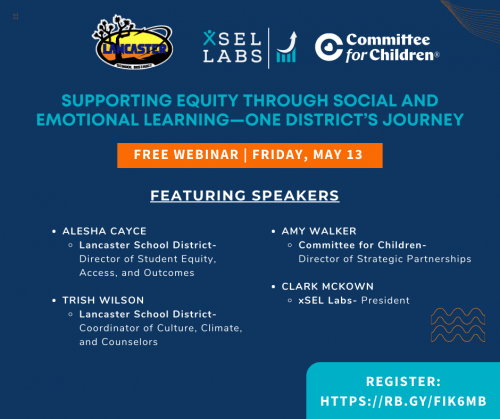
Trish Wilson, Coordinator of Culture, Climate, and Counselors, and Alesha Cayce, Director of Student Equity, Access, and Outcomes, at Lancaster School District in California (LancSD), share the district’s social and emotional learning (SEL) equity journey shifting the focus from punitive consequences to nurturing social-emotional learning skills. With the assistance of xSEL Labs and Committee for Children, LancSD has become a regional leader in SEL implementation and equity practices. Join our discussion between LancSD, Committee for Children, and xSEL Labs to explore the impact of intentional, equity-focused social and emotional learning implementation.
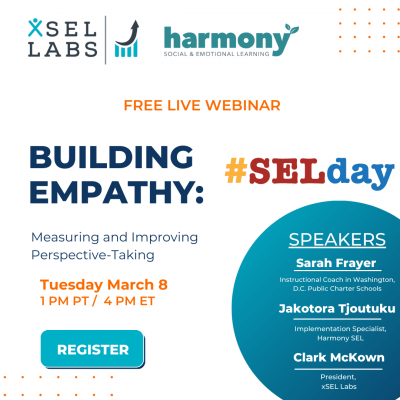
In honor of SEL Day 2022—Finding Common Ground, Pursuing Common Good— join us for a free webinar exploring how to measure and improve perspective-taking, a core SEL skill. We will discuss examples of perspective-taking, how to build this skill through classroom instruction and activities, and assess student competency. In addition, hear real-world examples of how to help students effectively communicate and reach common goals with others.
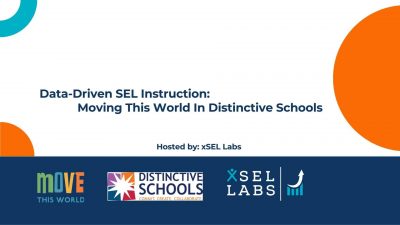
Learn how educators across the Distinctive Schools network have successfully combined SEL programming and assessment. This data-driven approach has enabled Distinctive Schools to integrate SEL data into daily instruction in multiple ways to strengthen SEL programs and practices.
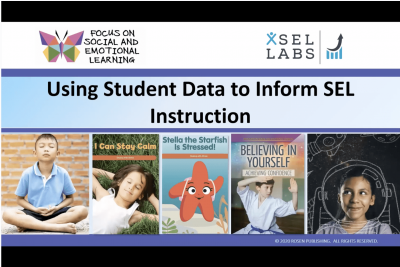
Addressing students’ urgent academic and SEL needs calls for a data-driven approach to both guides instructional decisions and measure students’ social and emotional growth. Join us to explore why data-driven academic integration of SEL is so crucial in our schools. The discussion will cover: Why SEL is critical in our schools, relevant SEL research, benefits of assessment with CASEL-aligned curriculum, and closing learning gaps through explicit SEL instruction.
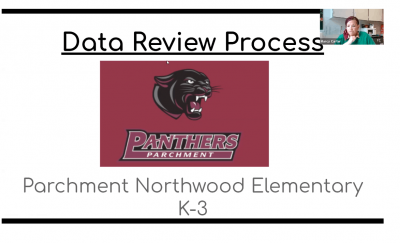
Educators from Northwood Elementary School in Michigan's Parchment School District share how they successfully integrate SEL assessment data into daily instruction in multiple ways to strengthen SEL programs and practices. Speakers include:
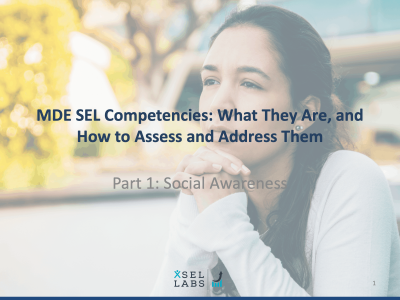
Increasingly states are establishing SEL standards. What SEL competencies should students know and be able to demonstrate at different levels? Increasingly states are establishing SEL standards. What do the look like in real life? Why do they matter? And how can educators assess and address those competencies, but formally and informally? In this webinar series, Clark McKown, President of xSEL Labs, will describe five social and emotional competencies, explore what they looks like and why they matter, and share formal and informal methods educators can use to assess and support the development of these competencies. Each webinar will cover a different competence.
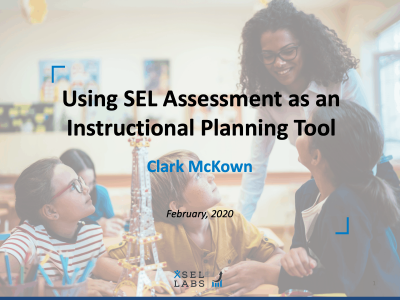
Learn how educators can use student social and emotional competence assessments to decide what to teach to whom and to monitor student progress. We describe a specific set of steps educators can take to move from on-size-fits-all SEL to data-informed SEL.
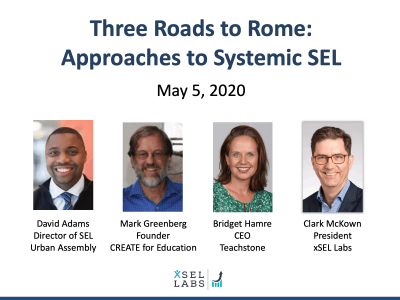
The very best SEL initiatives transform systems in ways that measurably improve teaching, learning, and student outcomes. The concept of system transformation can be daunting. How do we get from the system as it is to the system as we want it to be?
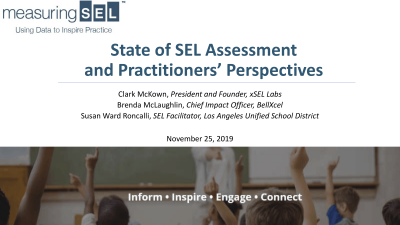
Where are we with SEL assessment and where do we need to move to help ensure data truly inspires practice? The Assessment Work Group leads a conversation with researcher Clark McKown from xSEL Labs and members of the National Practitioners Advisory Group, Brenda McLaughlin of BellXcel and Susan Ward Roncalli of the Los Angeles Unified School District.
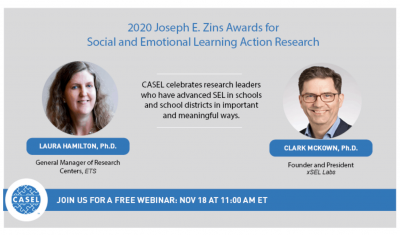
Learn from CASEL's 2020 Joseph E. Zins Awards recipients who have advanced SEL in schools and school districts in important and meaningful ways: Laura Hamilton, General Manager of Research Centers at ETS, and Clark McKown, founder and President of xSEL Labs. Topics will include 1) the connection between how teachers are promoting SEL and students’ civic learning, and 2) role of SEL assessment in supporting consistent and high-quality practice.
© 2023 xSEL Labs | Privacy | Terms of Use